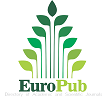The Human vulnerability as an ethical value in end-of-life care
Abstract
In this work we reflect on how the ontologically vulnerable and fragile character of the human can become a useful ethical value to guide the practice of care at the end-of-life. We will address in principle the distinction between contextual and ontological vulnerability, to argue the inherently fragile character of the human condition. We will take the metaphor of the wounded healer as one of the sources from which the idea of vulnerability is introduced as a model of care. Finally, we will present some reflections on how care at the end of life, typical of the hospice philosophy, allows us to think of the scope of human vulnerability as an ethical value constitutive of the practice of caring. Among the proposals, we believe that vulnerability as an ethical value justifies, due to its relationally constructed character, the establishment of symmetrical helping relationships and the need to recognize one's own limits.
Downloads
References
Benito, E. y Rivera-Rivera, P. (2019). El cultivo de la autoconciencia y el bienestar emocional en los profesionales que trabajan con el sufrimiento. RIECS, 4(S1), 2530-2787.
Benito, E., Rivera-Rivera, P., Yaeguer, J. y Specos, M. (2020). Presencia, autoconciencia y autocuidado de los profesionales que trabajan con el sufrimiento. Apuntes de bioética, 3(1), 72-88.
Bermejo, J. (2012). Empatía terapéutica. La compasión del sanador herido. Bilbao: Desclée de Brouver.
Goodin, R. (1985). Protecting the Vulnerable. Chicago: The University of Chicago Press.
Kearney, M. et al (2009), Self-care of Physicians Caring for Patients at the End of Life. Perspectives on care at the close of life. 301(11), 1155-1164.
Kearney, M. y Weininger, R. (2011). Whole person self-care: self-care from the inside out. Springer. New York, 109-125.
Kipnis, K. (2003), Seven Vulnerabilities in the pediatric research subject. Theoretical Medicine. 24, 107-120.
Kottow, M. (2003). The vulnerable and the susceptible. Bioethics. 17 (5-6), 460-471.
Luna, F. (2008). Vulnerabilidad: la metáfora de las capas, Jurisprudencia Argentina, 4 (1). Pp. 60-67.
Luna, F. (2009). Elucidating the Concept of Vulnerability. Layers not Labels. IJFAB, 2(1).
Luna, F. Y Salles, A. (2008). Bioética: nuevas reflexiones sobre debates clásicos. Buenos Aires: Fondo de Cultura Económica.
Mazzini, M. (2018). El cuidado hospice como acompañamiento espiritual. Teología urbana. Prácticas de espiritualidad popular. Azcuy, V. (coord.). Buenos Aires: Ágape Libros.
Nouwen, H. (1971). El sanador herido. PPC. Madrid.
O’Neill, O. (1996). Towards Justice and Virtue. Cambridge: Cambridge University Press.
Radosta, D. (2017). Devolverle al enfermo su entidad de persona. El cuidado hospice como dispositivo terapéutico. Plural. Revista de la Asociación Latinoamericana de Antropología.
Radosta, D. (2019). Reconstrucción histórica del surgimiento del moderno movimiento hospice. Scripta Ethnologica. Vol. XLI, 9-41.
Rogers, W., Mackenzie, C. y Dodds, S. (2012). Why Bioethics Needs a Concept of Vulnerability. IJFAB, 5(2), 11-38.
Roselló, F. (2010). Hacia una antropología de la vulnerabilidad. Revista Forma. Vol 2, 25-32.
Santi, F. (2013). Aportes para una nueva concepción de la vulnerabilidad en ética de la investigación. Fundación Jaime Roca. Premio anual de bioética 2013.
The authors retain copyright.
This work is under international license Creative Commons Attribution 4.0.
The articles published by the scientific journal "Notes on Bioethics" of the Universidad Catolica Santo Toribio de Mogrovejo, Chiclayo Peru, can be shared through the international public license Creative Commons Attribution CC BY 4.0
























 LIBRARY USAT
LIBRARY USAT